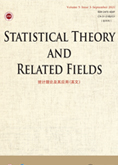Archives


- Issue 4, Volume 9, 2025
- Issue 3, Volume 9, 2025
- Issue 2, Volume 9, 2025
- Issue 1, Volume 9, 2025
- Issue 4, Volume 8, 2024
- Issue 3, Volume 8, 2024
- Issue 2, Volume 8, 2024
- Issue 1, Volume 8, 2024
- Issue 4, Volume 7, 2023
- Issue 3, Volume 7, 2023
- Issue 2, Volume 7, 2023
- Issue 1, Volume 7, 2023
- Issue 4, Volume 6, 2022
- Issue 3, Volume 6, 2022
- Issue 2, Volume 6, 2022
- Issue 1, Volume 6, 2022
- Issue 4, Volume 5, 2021
- Latest Articles
- Articles of 2024-2025













 loading......
loading......